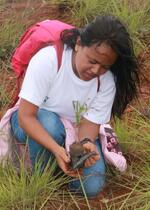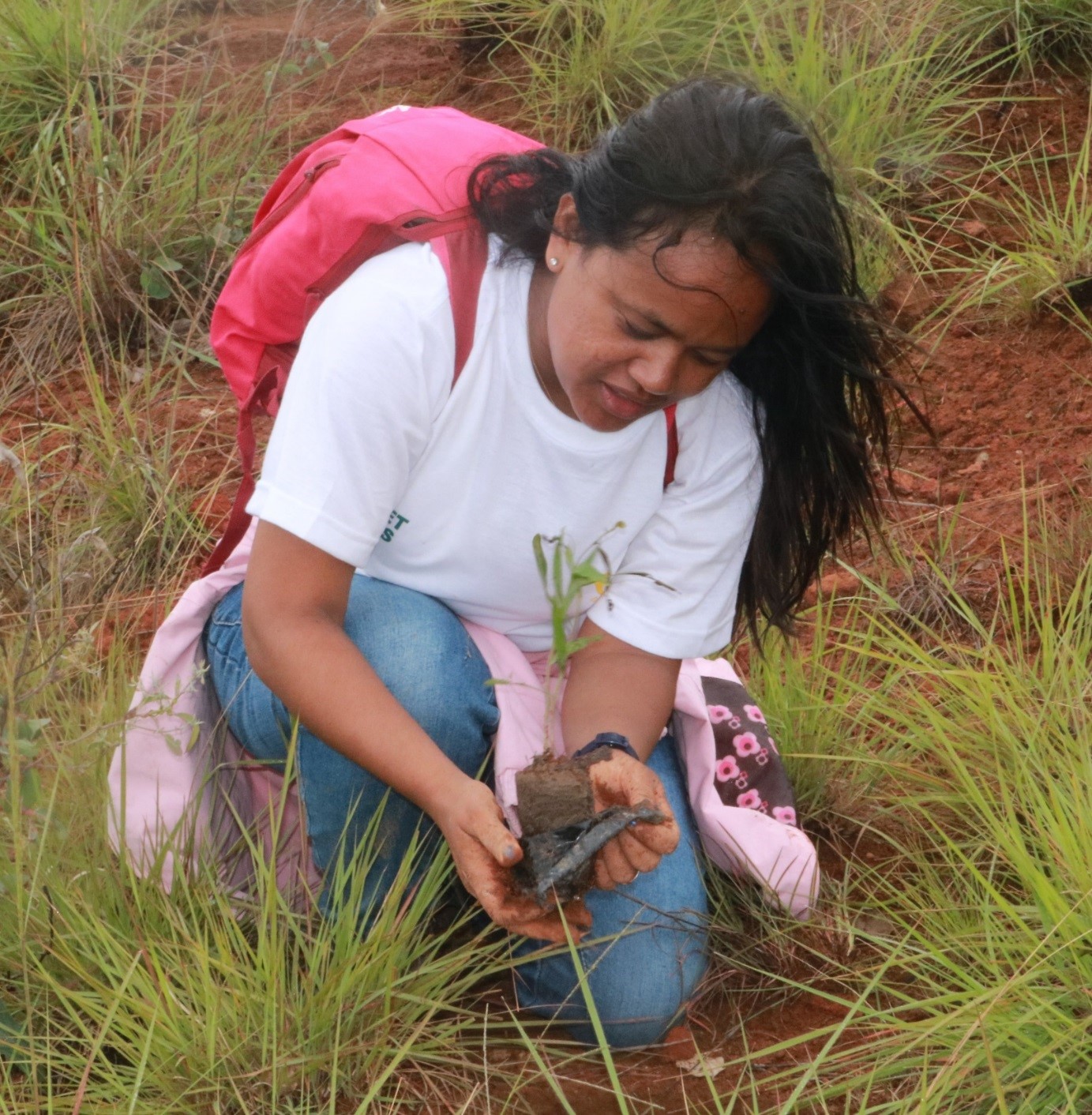Nature made our past, our evolution and constitutes our future... Reflections from Madagascar
"Born and living in a country that is home to nearly 5% of the world biodiversity may mean that we do not often ask ourselves why we love nature and why we should conserve it. But in my view, nature made our past, our evolution and constitutes our future," says Liliane Parany, a water and forest engineer at the Madagascar National Parks (MNP), upon completion of an online course developed by ‘Empowering People to Restore and Conserve Tropical Forests (ELTI)’ - Yale University in partnership with IUCN.
‘Tracking and scaling up Forest Landscape Restoration (FLR) activities in support of AFR100 in selected countries’ is a project aimed at establishing a baseline for the restoration of degraded lands in the watersheds of Lake Chamo in Arba Minch, Ethiopia and Boeny and Diana regions of Madagascar.
One major component of this project, is the capacity building for FLR stakeholders, through an online course developed by ‘Empowering People to Restore and Conserve Tropical Forests (ELTI)’ - Yale University in partnership with IUCN.
Liliane Parany, a water and forest engineer at the Madagascar National Parks (MNP) completed the course in January 2020. She shares her experience and learnings:
Tell us about yourself
 Photo: Liliane Parany
Photo: Liliane Parany
What motivated you to work in conservation and nature?
 Photo: Liliane Parany
Photo: Liliane Parany
What was your experience participating in the FLR online course?
The online course was very dynamic and interactive. The content was very well targeted and different levels of FLR were well explained through the modules: The why, how to plan and implement, what to pay attention to and how to follow up for adaptive restoration management. It taught us how to develop a theory of change at the national and multisector level in terms of strategy for the restoration of forest landscapes.
What was your greatest learning?
 Liliane Parany in Tsimanampesotse National Park, Madagascar
Photo: Liliane Parany
Liliane Parany in Tsimanampesotse National Park, Madagascar
Photo: Liliane Parany
How is the new knowledge helping in your work?
I see its benefits at two levels: the first being that the Bonn challenge presents a synergy of the objectives of several international agreements. And in my work, I support, among other things, the implementation and monitoring of achievements of these various international agreements in our field.
The second being that, among the five priority options of FLR in Madagascar, I work more in the restoration of degraded natural forests. Therefore, the expertise that I acquired during the course will allow me to draw inspiration from actions to restore ecosystem services to improve the well-being of populations living near the protected areas so that we can gradually strengthen the reduction of direct dependence on natural resources for better management of our biodiversity.
Will the learnings add value to FLR work in Madagascar?
 Photo: Liliane Parany
Photo: Liliane Parany




